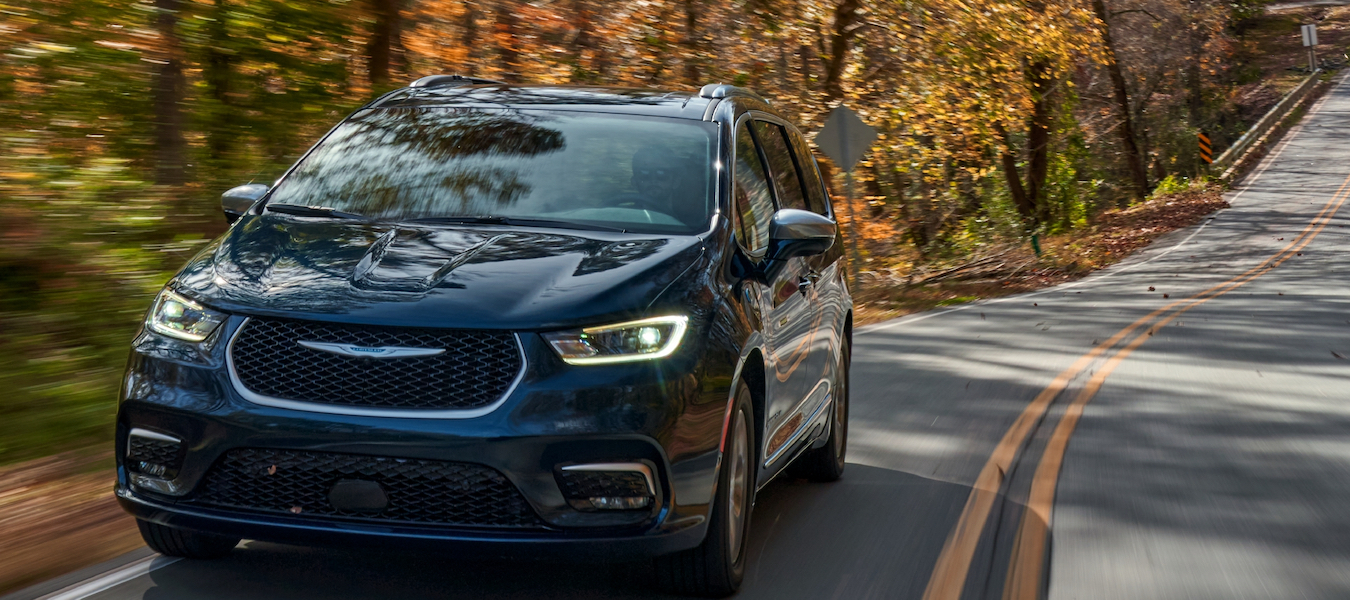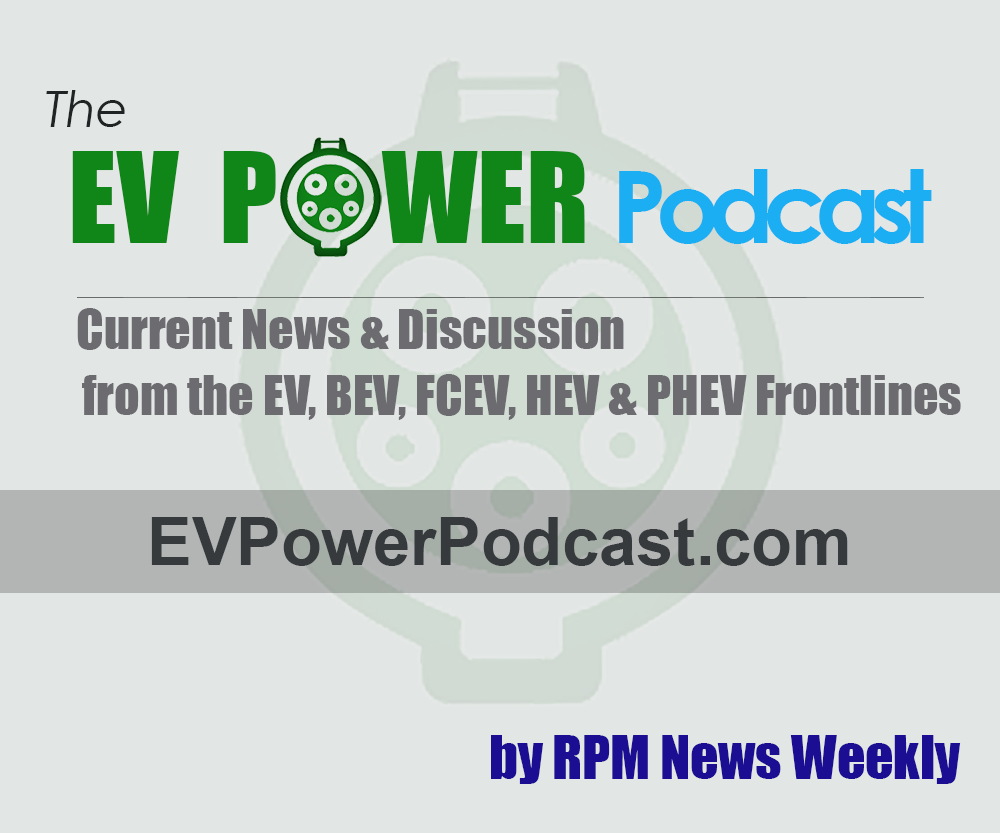The Chrysler Pacifica minivan brings a long history of refinement to a new height with the refreshed 2021 model. Loaded with more standard content including 14 new-as-standard safety features; available in all-wheel drive gasoline versions; offering a plug-in hybrid variant; and presenting an ultra-luxurious new Pinnacle trim, this is a minivan that can surely beckon families away from impractical SUV fixations.
Monday, March 1, 2021
Friday, October 7, 2016
Becoming One With The BMW M2 – A Transcendental Exercise
Time behind the wheel of the 2016 BMW M2 is transformational. You can review a car by the numbers or you can review a car by the seat of your pants. For me to tell you that the M2 produces 365 horsepower and 343 pound-feet of torque becomes a tedious exercise in trying to prove something that only has meaning when it's experienced first hand.
After all, a Ford Mustang GT makes 435 horsepower, and a Dodge Challenger Hellcat is beastly powerful with 707 horsepower, but neither make me feel the same exhilaration I have felt the past week every time I've been at the wheel of the M2. This is a car that flirts with nirvana.
After all, a Ford Mustang GT makes 435 horsepower, and a Dodge Challenger Hellcat is beastly powerful with 707 horsepower, but neither make me feel the same exhilaration I have felt the past week every time I've been at the wheel of the M2. This is a car that flirts with nirvana.
Wednesday, September 28, 2016
2017 Subaru Outback Creates Enduring Impression
The 2017 Subaru Outback lends lots of credence to the maxim that first impressions are lasting impressions. The substantial click-swoosh on first opening the driver’s-side door, the easy ingress onto a comfortable, firm leather seat, and the plush, soft-touch surfaces all around proved to be markers for a rewarding five-day test-driving experience.
Even so, the 2.5i Limited edition of the Outback I drove never gave me reason to think I had merely been overcome by the rush of new-car scented air.
New Englanders are no strangers to the Subaru Outback. Consistently among the top-selling vehicles in this part of the country, this 5-passenger midsize wagon thrives in all seasons, showing the kind of pluck we’d like to think is our birthright.
Wednesday, August 31, 2016
The Thrill of Compromise in the Alfa Romeo 4C Spider
All the excitement of
driving the 2016 Alfa Romeo 4C Spider can be addictive up until you take it for
a weekend retreat that's more than 90 minutes away. Then you'll be
second-guessing its practicality.
This is a magnificent vehicle that belongs on
a road course track, not on a crowded freeway and certainly not in your
driveway for the neighbors to gossip about your finances while ogling its
curvaceousness.
Monday, December 1, 2014
Zipping, Zooming & EZ Parking with MINI Cooper
There’s one description for the MINI Cooper Hardtop that you won’t hear me using anymore – “It’s cute!”
After doing lots of zipping – and the occasional zooming – around in a spiffed-up version of the four-seat coupe for a good part of a week, I can absolutely conclude that “cute” does not do this charmingly adept bit of refined automotive engineering any justice. And justice IS what it deserves after being saddled with such a chic, trendy, bountifully adorable image.
Wednesday, June 11, 2014
2015 Chrysler 200 Sets New Benchmarks
WHAT’S NEW: For 2015, the Chrysler 200 is completely redesigned and now offered as a 5-passenger sedan only.
Call it casual elegance or affordable luxury, but either way, the 2015 Chrysler 200 steps up the mid-size sedan driving experience with a whole new set of benchmarks that showcase the brand’s updated design language and state-of-the-art technology. Trims include the base LX, uprated Limited, sporty 200S and premium 200C.
Tuesday, March 3, 2009
Will Changing Times Change The Auto Industry?
We’ve come a long way in a short 100 years with the automobile. Out of the minds of a few lone inventors and a handful of small bicycle shops and carriage manufacturers, emerged an automobile industry that has developed into a powerhouse of production and employment whose survival now seems inexorably linked to the success of world economies.
But as the big players in this industry stumble in the current mess of financial woes, one wonders if the playing field could fast be redefined by smaller start-up companies.
If so, will these new players need to make a gigantic leap across the entire last century of industrial growth in one jump? Or, will they be something that functions completely different?
Will Detroit’s automakers need to redefine their manufacturing model? Can corporations so massively industrialized become agile enough to rapidly alter production in the face of sudden changes in demand?
Each year, automakers offer consumers improvements and new features in their product lines. The evolution of the automobile into today’s lineup of vehicles has shown remarkable progress in safety, performance, function and durability.
But there’s a difference between what’s new and what’s really new. A new feature does not fundamentally change the concept of a vehicle; a new model doesn’t necessarily mean a totally new automotive entity. A new design is not a new way of bringing cars to market.
When Honda introduced North America to its first production gasoline/electric hybrid vehicle, the Insight, a decade ago, that was something really new. In both design and means of propulsion, the Insight defied convention. Toyota wasted no time in bringing out its hybrid, the Prius, soon afterwards.
The original two-seater Insight was in production until 2006 and is making its way back to market this April as a 2010 five-passenger model. Meanwhile, Toyota has launched a redesigned Prius that is bigger and more powerful.
American automakers were slow to respond to the hybrid challenge and have been playing catch-up since. At times, there were indications that they might not even embrace the technology at all.
Times have changed.
Ford tiptoed into the hybrid market (the first domestic automaker to do so) with a version of the 2006 Escape SUV. Now, it is set to go gangbusters with the Fusion Hybrid – a more mainstream type of automobile that will be in showrooms this spring. Looks like Ford wants a share of the Toyota Camry Hybrid market.
Bob Bancroft, owner of Ashley Ford in New Bedford, Massachusetts described the new Fusion Hybrid as the highest mileage hybrid made in America - chalking up a mileage rating of 41 mpg.
High-mileage is the new mantra.
“Ford’s CEO (Alan Mulally) has made a promise that every vehicle will get better fuel economy than the vehicle it replaces,” noted Mr. Bancroft. “That’s the big story.”
Good news for sure. Ford is showing good effort to change the perception that big automakers are not making the cars people want.
But big automakers worldwide may soon find their foundations being rattled by an innovative start-up company, Local Motors, located in Wareham, Massachusetts. The company describes itself as “the first disruptive entrant in the US automotive industry in decades.”
Local Motors is not looking to mass produce vehicles. If they can build 2,000 vehicles per year at each of eventually 25 locations, that would please company founder Jay Rogers. It will be proof that their idea of “challenging the paradigm of highly centralized manufacturing, embattled dealerships and dispersed service locations,” is the way to go.
Ultimately, it could change the way consumers buy (and think about buying) their vehicles.
“The world changes faster than we develop cars,” observed Mr. Rogers. “It doesn’t need to be that way.”
He expects to turn heads by demonstrating that there is a different and faster way to get the cars people actually want out to market than the way it is currently being done.
But comparing Local Motors to the small manufacturers at the dawn of the auto age is hardly accurate according to Mr. Rogers. There’s a lot of automotive infrastructure that’s developed and capable of producing high quality, off-the-shelf parts and supplies most of which is now going to non-OEM (Original Equipment Manufacturer) purchasers. This is what Local Motors plans to tap into instead of manufacturing automotive parts themselves.
“You can stand on the shoulders of product development,” explained Mr. Rogers.
Easy access to everything from engines to brakes is an advantage previous start-ups like the ill-fated DeLorean Motor Company did not have thirty years ago.
Aiming to produce lower-weight vehicles that are designed by an online consensus of car enthusiasts (a internet savvy technique called crowd-sourcing), built from off-the-shelf parts and marketed to specific geographic regions, Local Motors’ business model completely redefines the way cars get to market.
But how will selling 50,000 cars shake up the Detroit automotive establishment that looks at sales in the millions per year.
“We hope to be a tipping point,” said Mr. Rogers.
He’s not alone in that wish.
Dean Kamen, the inventive creator of the Segway personal transporter is busy developing an electric vehicle called the Revolt which utilizes his version of a type of external combustion engine called the Stirling (after Robert Stirling, its 19th century inventor) to provide an electrical assist to the vehicle’s batteries.
Even though Kamen’s DEKA Research & Development Corp. hopes to have a production version of the vehicle on the market in 2 years, his goal may be less that of becoming an automaker and more of becoming the inventor that paves the way for other automakers to use the technology.
The Revolt design is based on the Ford Think which was cancelled in 2002. Ford sold its stock in the company and ultimately the Think brand wound up in Norway and today is producing electric cars for the European market.
Think describes its vehicles as, “emission free and three times as energy efficient as the cars used today.” The Think City model is designed to muster 62 mph with a range of 126 miles on a charge.
But Jim Lutz, president of Alden Buick Pontiac GMC Truck in Fairhaven, Massachusetts is not holding out hope that these new smaller companies will last.
“If you look at the history of startups, it’s dismally bad,” he observed. “Even craft businesses have gone by the wayside.”
For him, the car industry, in terms of its business sophistication, ranks just below the aircraft industry. Starting a car-making business from scratch may be just too formidable a challenge to succeed.
“The development costs are so high, they create such a barrier to entry,” he said.
But faced with the economic battering they are experiencing, the big automakers are taking their hour of despair and looking differently at how they do business.
“At GM, they’ve really put all their focus on the electric hybrid,” noted Mr. Lutz referencing the hulky new Yukon Hybrid.
Although the 20 city/20 highway mpg ratings show the vehicle to have improved fuel efficiency, the numbers themselves seem to come up short of startling. But Mr. Lutz put that into perspective given the size of the vehicle and what consumers could expect in this type of vehicle not so long ago.
“It’s a very interesting technological progression to get to mileage unthinkable 20 years ago,” he said. “This is starting to show the advantage of electric power.”
On both ends of the car making spectrum, at big and small companies, long-established businesses and fresh startups, everyone is using the word change in new hopeful tones. That’s good. A change in perspective is at the heart of innovation.
But as the big players in this industry stumble in the current mess of financial woes, one wonders if the playing field could fast be redefined by smaller start-up companies.
If so, will these new players need to make a gigantic leap across the entire last century of industrial growth in one jump? Or, will they be something that functions completely different?
Will Detroit’s automakers need to redefine their manufacturing model? Can corporations so massively industrialized become agile enough to rapidly alter production in the face of sudden changes in demand?
Each year, automakers offer consumers improvements and new features in their product lines. The evolution of the automobile into today’s lineup of vehicles has shown remarkable progress in safety, performance, function and durability.
But there’s a difference between what’s new and what’s really new. A new feature does not fundamentally change the concept of a vehicle; a new model doesn’t necessarily mean a totally new automotive entity. A new design is not a new way of bringing cars to market.
When Honda introduced North America to its first production gasoline/electric hybrid vehicle, the Insight, a decade ago, that was something really new. In both design and means of propulsion, the Insight defied convention. Toyota wasted no time in bringing out its hybrid, the Prius, soon afterwards.
The original two-seater Insight was in production until 2006 and is making its way back to market this April as a 2010 five-passenger model. Meanwhile, Toyota has launched a redesigned Prius that is bigger and more powerful.
American automakers were slow to respond to the hybrid challenge and have been playing catch-up since. At times, there were indications that they might not even embrace the technology at all.
Times have changed.
Ford tiptoed into the hybrid market (the first domestic automaker to do so) with a version of the 2006 Escape SUV. Now, it is set to go gangbusters with the Fusion Hybrid – a more mainstream type of automobile that will be in showrooms this spring. Looks like Ford wants a share of the Toyota Camry Hybrid market.
Bob Bancroft, owner of Ashley Ford in New Bedford, Massachusetts described the new Fusion Hybrid as the highest mileage hybrid made in America - chalking up a mileage rating of 41 mpg.
High-mileage is the new mantra.
“Ford’s CEO (Alan Mulally) has made a promise that every vehicle will get better fuel economy than the vehicle it replaces,” noted Mr. Bancroft. “That’s the big story.”
Good news for sure. Ford is showing good effort to change the perception that big automakers are not making the cars people want.
But big automakers worldwide may soon find their foundations being rattled by an innovative start-up company, Local Motors, located in Wareham, Massachusetts. The company describes itself as “the first disruptive entrant in the US automotive industry in decades.”
Local Motors is not looking to mass produce vehicles. If they can build 2,000 vehicles per year at each of eventually 25 locations, that would please company founder Jay Rogers. It will be proof that their idea of “challenging the paradigm of highly centralized manufacturing, embattled dealerships and dispersed service locations,” is the way to go.
Ultimately, it could change the way consumers buy (and think about buying) their vehicles.
“The world changes faster than we develop cars,” observed Mr. Rogers. “It doesn’t need to be that way.”
He expects to turn heads by demonstrating that there is a different and faster way to get the cars people actually want out to market than the way it is currently being done.
But comparing Local Motors to the small manufacturers at the dawn of the auto age is hardly accurate according to Mr. Rogers. There’s a lot of automotive infrastructure that’s developed and capable of producing high quality, off-the-shelf parts and supplies most of which is now going to non-OEM (Original Equipment Manufacturer) purchasers. This is what Local Motors plans to tap into instead of manufacturing automotive parts themselves.
“You can stand on the shoulders of product development,” explained Mr. Rogers.
Easy access to everything from engines to brakes is an advantage previous start-ups like the ill-fated DeLorean Motor Company did not have thirty years ago.
Aiming to produce lower-weight vehicles that are designed by an online consensus of car enthusiasts (a internet savvy technique called crowd-sourcing), built from off-the-shelf parts and marketed to specific geographic regions, Local Motors’ business model completely redefines the way cars get to market.
But how will selling 50,000 cars shake up the Detroit automotive establishment that looks at sales in the millions per year.
“We hope to be a tipping point,” said Mr. Rogers.
He’s not alone in that wish.
Dean Kamen, the inventive creator of the Segway personal transporter is busy developing an electric vehicle called the Revolt which utilizes his version of a type of external combustion engine called the Stirling (after Robert Stirling, its 19th century inventor) to provide an electrical assist to the vehicle’s batteries.
Even though Kamen’s DEKA Research & Development Corp. hopes to have a production version of the vehicle on the market in 2 years, his goal may be less that of becoming an automaker and more of becoming the inventor that paves the way for other automakers to use the technology.
The Revolt design is based on the Ford Think which was cancelled in 2002. Ford sold its stock in the company and ultimately the Think brand wound up in Norway and today is producing electric cars for the European market.
Think describes its vehicles as, “emission free and three times as energy efficient as the cars used today.” The Think City model is designed to muster 62 mph with a range of 126 miles on a charge.
But Jim Lutz, president of Alden Buick Pontiac GMC Truck in Fairhaven, Massachusetts is not holding out hope that these new smaller companies will last.
“If you look at the history of startups, it’s dismally bad,” he observed. “Even craft businesses have gone by the wayside.”
For him, the car industry, in terms of its business sophistication, ranks just below the aircraft industry. Starting a car-making business from scratch may be just too formidable a challenge to succeed.
“The development costs are so high, they create such a barrier to entry,” he said.
But faced with the economic battering they are experiencing, the big automakers are taking their hour of despair and looking differently at how they do business.
“At GM, they’ve really put all their focus on the electric hybrid,” noted Mr. Lutz referencing the hulky new Yukon Hybrid.
Although the 20 city/20 highway mpg ratings show the vehicle to have improved fuel efficiency, the numbers themselves seem to come up short of startling. But Mr. Lutz put that into perspective given the size of the vehicle and what consumers could expect in this type of vehicle not so long ago.
“It’s a very interesting technological progression to get to mileage unthinkable 20 years ago,” he said. “This is starting to show the advantage of electric power.”
On both ends of the car making spectrum, at big and small companies, long-established businesses and fresh startups, everyone is using the word change in new hopeful tones. That’s good. A change in perspective is at the heart of innovation.
Subscribe to:
Comments (Atom)








